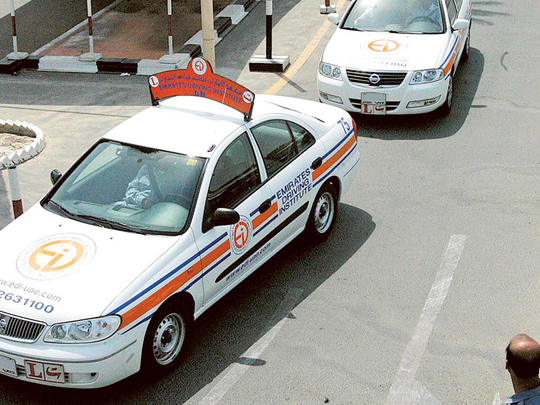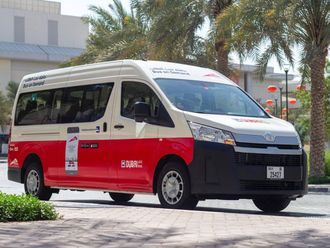
Dubai: Yard test, a key milestone in a driver’s training programme, will soon be automated if the trial on a new tech-based system proves successful.
A senior Roads and Transport Authority (RTA) official told Gulf News that studies are being made about various technologies that could be implemented in the process of automation.
“We are in the initial stage of research and development. Various options that are available in the market or those that have been implemented in other countries are being looked at. We are looking for technologies that suit us and how we can customise these systems to our needs and requirements,” said Arif Al Malek, Director of Drivers Training and Qualification at RTA’s Licensing Agency.
The move is part of the smart government initiatives of Dubai, offering smart solutions to people.
“Automation will ensure there will be no human intervention during the test. This will make things much easier for people in terms of quality and reduction of mistakes in judgement by examiners. When human intervention is involved the chances of error in judgement is higher, so use of technology will minimise the margin of error. We are trying to use smart solutions wherever possible to help people and make them happy,” said Al Malek.
Candidates training to obtain a driving licence across all categories in Dubai have to take the yard test after the initial few classes. The test includes five manoeuvres such as parking, garage, 60 degree parking, emergency brake and hill movement.
The tests are currently conducted manually by in-house examiners at the driving institutes, which is likely to change soon.
In the new system the driver’s performance will be monitored by smart cameras and hi-tech sensors instead of humans. However, the tests will be conducted in a controlled environment in order to ensure safety of the candidates.
“Automated tests have already been implemented in some countries but what we are doing is taking it a step further. We will have the most unique system in the world. We will be benchmarking best practices in various regions because we have people from across the world and, based on those benchmarks, we will talk with vendors to provide us the custom-made system tuned to our requirements,” added Al Malek.
Once the system is ready RTA will start live trials at driving schools and, if found successful in helping improve the results, it will be implemented permanently.
“Our aim is to improve people’s level of satisfaction and reduce complaints,” he said.
Last month, Gulf News reported that the Licensing Agency is studying the possibility of conducting the eight mandatory driving lectures online.
If implemented, the e-learning system will save candidates from the hassle of physically attending lectures in driving schools, though the regular classes will continue to operate. The move is also part of the smart government initiative.
In a similar attempt, the RTA Licensing Agency will soon set up smart kiosks at driving schools that allow candidates to book their driving tests according to their convenience.










